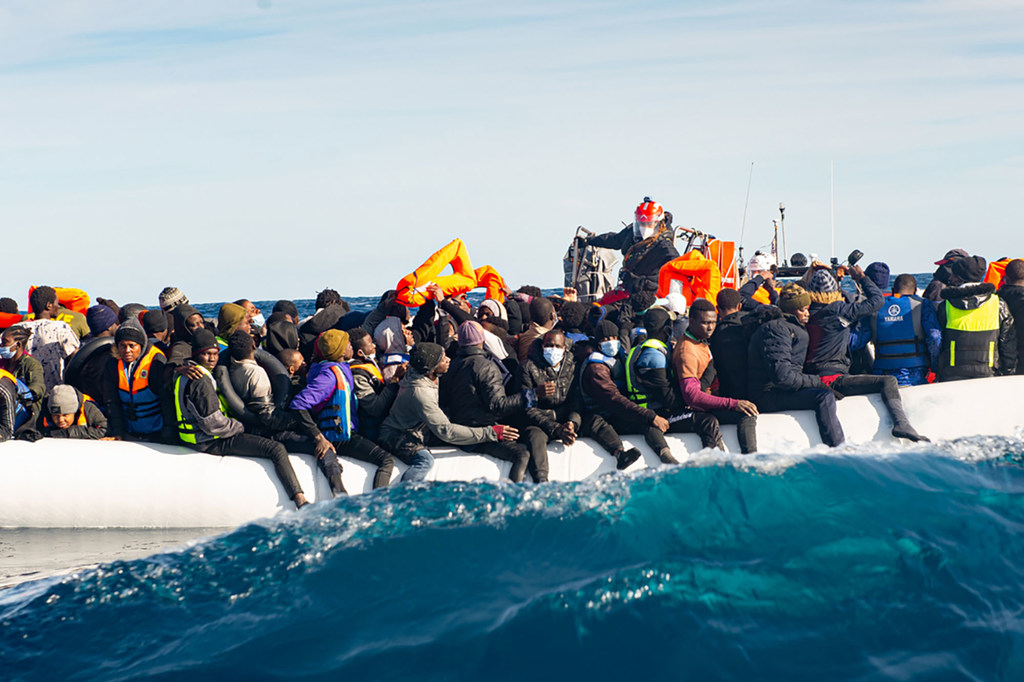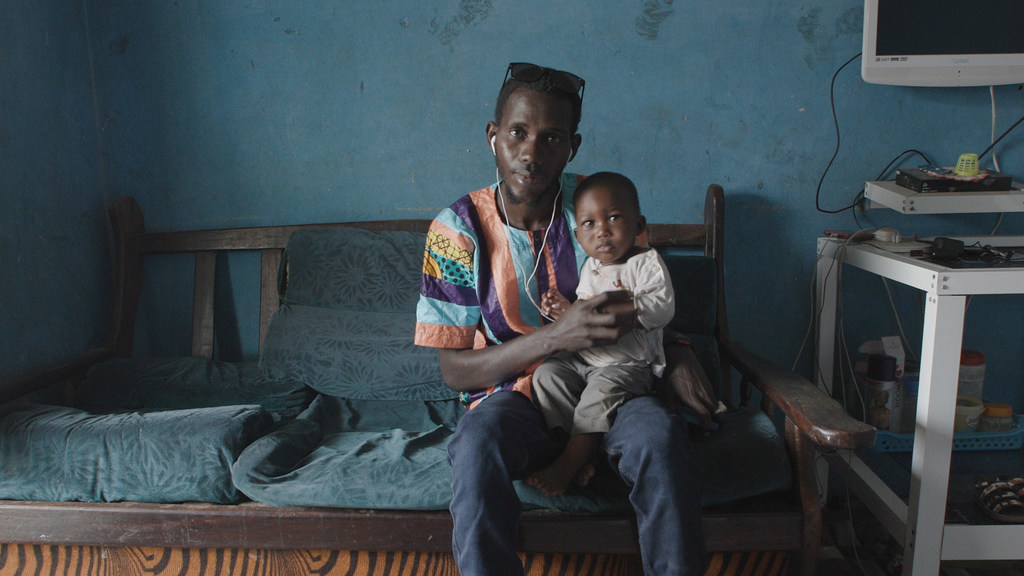Sometimes the drivers were nice people, but others were very harsh, and they would beat us. When we got into Libya, we were beaten, and all of our money was taken from us. Luckily, I had hidden some food in the bus. The people who beat us had guns, and I was very scared that they would shoot us.They provided me with tailored in-kind support in the form of a cement business, but, unfortunately, the place I found to store the bags of cement was not protected from the weather: it was the rainy season, and the water reached all of the cement. It was ruined. © SOS Méditerranée/Fabian Mondl The first step was neighbouring Senegal, and from there we got a bus to Mauritania. I stayed there, with my sister’s husband, for five months, doing construction work, and whatever I could, to earn money for the next stage of the journey. There were about 25 of us in an open pickup truck, driving through the desert, with no shade. It was very hot and uncomfortable. We drove for three days, sleeping in the desert. At night, it was very cold, and we had to buy blankets and big jackets to keep us warm. When we arrived on shore, we were taken to a detention centre. We were beaten by soldiers, who told us to give them money, but I had nothing left. I had to stay there for two months in these harsh, dirty conditions. Our phones were taken from us so we couldn’t contact our families; many of them though that we were dead.

UN News/ Hisae Kawamori
‘I was scared they would shoot us’
“I’m from Jarra, a rural area in the Lower River Region of The Gambia, in the middle of the country. I moved to the capital, Banjul, when I was 15, to live with my brother and go to high school. I didn’t graduate, though, because we couldn’t afford the fees. Amadou Jobe found a job in the Gambia capital Banjul, after a failed attempt to reach Europe by boat. UN News/ Hisae Kawamori
‘They shot the boat’
I had to wait over a year in Tripoli before I could get to the coast and take a boat for Italy. One of my brothers found the money for me to get a place on the boat. Before we set off, there was some shooting and we soon realized that our boat was taking on water:. I went back to the UN to ask for more help, and they offered me skills training. This was very useful, and I was able to get a certificate and go back to working with aluminium. I got a job working in a friend’s shop in Banjul, which sells aluminium window frames. I was very sad: I had lost everything and would have to start again from zero. I didn’t want to return home, but I had no choice.

When I arrived in The Gambia, the UN migration agency (IOM) offered to help me to start a business. They asked me what I wanted to do and, because of my experience working in construction, I told them that I could sell cement.